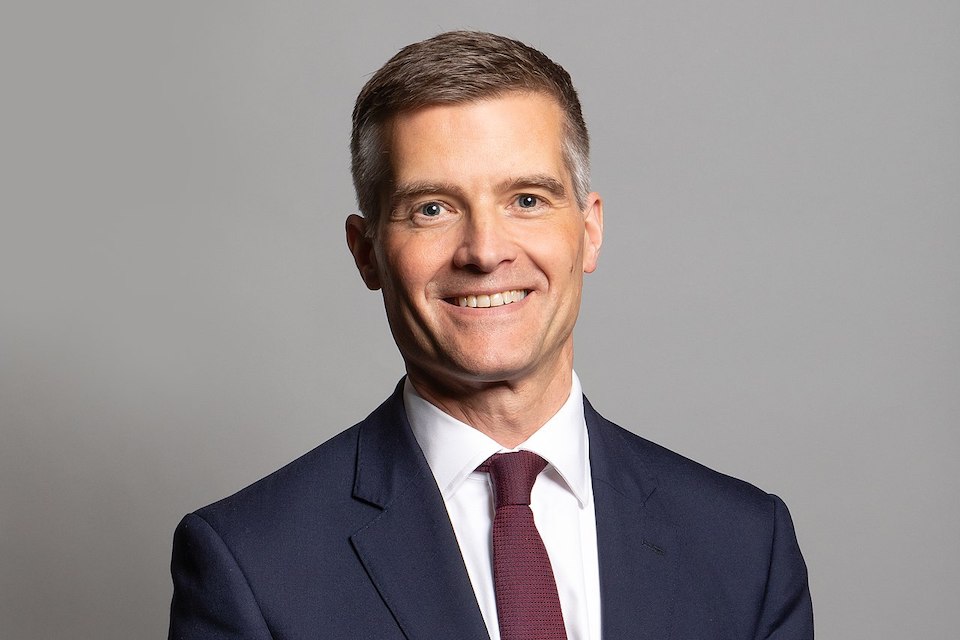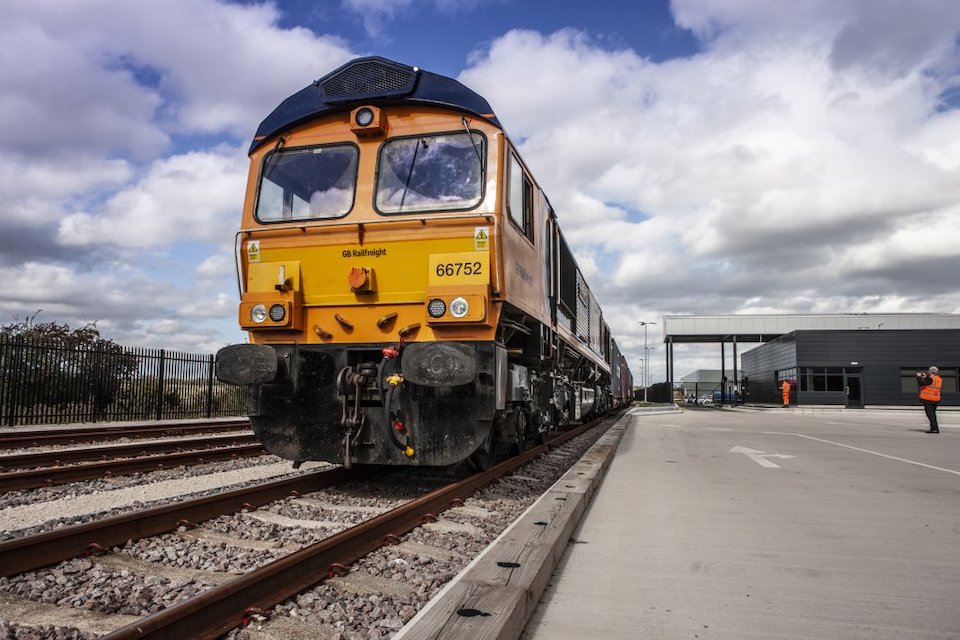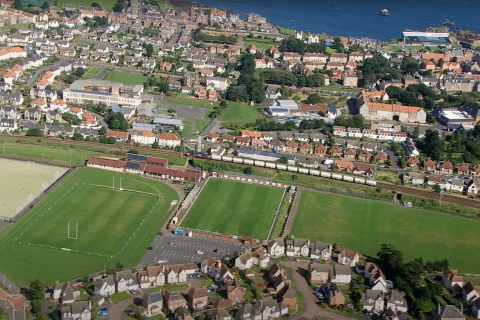Transport Secretary actually includes freight in major UK rail speech

Mark Harper, the UK transport secretary, has affirmed his commitment to the rail sector and has outlined plans to modernise the industry. That message has met with mixed responses. The freight industry has given it a thumbs up, but the rail unions have been more inclined to point in the other direction and throw the minister to the lions. Harper was delivering the George Bradshaw Address at the Institute for Civil Engineers in Westminster in London.
A dedicated Strategic Freight Unit and the establishment of a rail freight growth target were key points from the George Bradshaw Address, delivered by transport secretary Mark Harper. The minster made capital of his desire for a seven-day-a-week railway which he called an engine for growth and called for a network allowing more flexibility for freight. However, he could not overlook the current situation, which he says is mired in industrial action, and lets down passengers and freight customers. Harper wants to break the historical inability to deliver significant improvements at good value for the taxpayer. No one has denied he has set himself a tough agenda.
There remains a lot of misinformation
George Bradshaw is famous for making sense of the Victorian chaos that was the development of the British railways in the nineteenth century. Two hundred years later, that legacy is still evident in the many quirks of the network experienced to this day. If Harper is to go down in history for untangling the knitting of conflicting agendas that stall modernisation, he will have to write a guide as influential as the one in whose name he was speaking last week. All that at a time when public spending is under scrutiny like never before.

In his address, Harper did, however, commit to some investment in the railways. At least, some may agree that committing to a radical reform of management is a good investment. “There remains a lot of misinformation about GBR [Great British Railways – the proposed new management body]”, he said, arguing that it was not going to be Network Rail 2.0, nor a return to [the nationalised] British Rail. “Taking politics out of the railways is the only way to build a truly commercially led industry. That’s why GBR will be an arm’s length body, ensuring a balanced approach to infrastructure and operations. With both sides getting a seat at the table and delivering an efficient, high-performing railway for customers.”
The railways are not fit for purpose
The railways have speeded up over the years but historically have proved slow at adopting change. Harper said that had led to a disillusioned public not trusting how the railways are run. “I’ve spent my first few months in this job listening to the experts to understand what’s holding back meaningful change and how we move forward”, he said, without bringing himself to name his predecessor directly. “The [Williams Shapps] Plan for Rail has already been announced to the House of Commons in May 2021. So delivering that policy, moving from the words to action, is my priority because the railways, quite frankly, aren’t fit for purpose. We’re mired in industrial action, which lets passengers and freight customers down. And historically unable to deliver major improvements at good value for the taxpayer.”
Nevertheless, the UK faces a challenging economic outlook, which many might say has been exacerbated by the minister’s party. However, while admitting that political and economic turmoil had not helped, Harper stuck to the government priorities of halving inflation, growing the economy, and reducing debt. “It is a testament to this industry’s huge economic potential that even amidst a challenging fiscal climate, we gave full backing to the 96 billion pounds [118 billion euros] Integrated Rail Plan.”
Minister equates railways to a basket case
The minister shunted out a long list of ongoing projects, significantly including “Euston to Manchester”, as if to reassure the audience that HS2 was going all the way from central London to the north – despite the expectation of a wide-ranging review of the high-speed rail project, as revealed in the UK media over the weekend. Harper said there was still a while before the benefits of many infrastructure projects would be realised. He cited the pandemic for making “a bad problem worse, a lot worse.” However, that mainly applies to reduced passenger revenues, and freight is more buoyant.
Financially though, the minister equates the railways to a basket case. “Operating the railways is currently financially unsustainable”, he said. “It isn’t fair to continue asking taxpayers to foot the bill. Most of them don’t regularly use the railways, including plenty of my constituents in the Forest of Dean.” The minister did not dwell on the fact that many constituents or businesses had little practical opportunity to use the railways because of successive rationalisations and pricing policies which left passengers without stations and alternatives to rail freight far cheaper to access.
Promise to finally establish Great British Railways
Harper announced limited but welcome reform to passenger ticketing before turning to the railways raison d’être. “Carrying tens of billions of pounds worth of goods, we cannot overstate rail freight’s untapped potential for green growth”, said Harper. “I intend to create a duty to ensure the new industry structure realises that potential. With a dedicated Strategic Freight Unit tasked with creating better safeguards, more national coordination and, later this year, listening to what was said earlier, setting a long-term freight growth target.”

A promise was also made to finally establish Great British Railways, the over-arching replacement for the infrastructure agency Network Rail, with a few managerial powers thrown in. “The winner of the GBR HQ competition will be revealed before Easter”, he said. So that’s Sunday, 9 April, to put in your diary if you are still among the six communities in the running. “By the summer, we will respond to the consultation on GBR’s legislative powers”, he added. So we should know exactly what managerial powers are being thrown in.
“GBR will be responsible for track and train, as well as revenue and cost. Which means finally treating the railway as the whole system it should be rather than a web of disparate interests that it’s become”, Harper explained. Hopefully, that will lead to an end of the excuse-making and blame-shifting culture, which, it might be added, his government exacerbated by the programme of fragmentation followed since the 1990s. He did say GBR would be a single point of accountability for the performance of the railway. Well, the buck could hardly stop with the transport secretary.
You just read one of our premium articles free of charge
Want full access? Take advantage of our exclusive offer





Regrettably, by “missing the train” industry (railways) now is at the mercy of politicians – and Industry, to be blamed!
For England, however, now post Brexit, urgently remains to define Goal – of infrastructure!
(Advantage of being an island, decisively has to be benefitted!)
Ports, big or small, virtually shall be on line, by a sustainable, high quality rail way infrastructure!
(Electrification, shall be robust (redundant).
Track sustainably shall withstand current – and future traffic, etc.!)